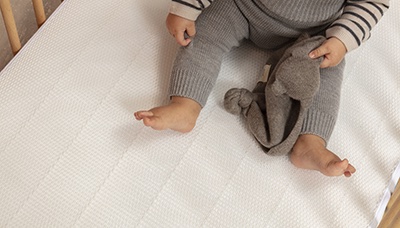You know the story. The birds are singing, the sun is shining and spring is in the air! It’s also the time of year when we “spring forward” to daylight saving time. On 31 March 2024 at 2:00 a.m. we’ll be putting the clocks forward an hour. Days are going to get longer, nights are going to get shorter and your little one will have to get used to a whole new sleep schedule. It can be tough. But it doesn’t have to be.
One of the best ways to help your baby adjust to the new schedule is surprisingly simple:
Ignore daylight saving time.
Easy, right? Just let nature take its course. Putting the clocks forward generally has little or no effect on children who are less than 6 months old. On the other hand, babies with adult-like sleep patterns can have some problems adjusting. But don’t worry – there are some tricks you can use to help bridge that one hour difference.
Start early.
Children adapt to anything, even a different daily schedule. But it does help if you make a gradual transition to one hour earlier. It’s a good idea to start moving the schedule forward a few days before daylight saving time begins. Fifteen minutes a day is enough. And by schedule we don’t just mean bedtime, but also meals, naps and everything else. So, basically, if your child normally goes to bed at 7:00 p.m., move it to 6:45 p.m., 6:30 pm and finally 6:15 p.m. one day before the clocks go forward. The next day, when daylight saving time starts, you'll be perfectly on schedule.


Play with light and dark.
During the first few days after the clocks go forward, light can be a problem. Going to bed while it's still light out or having to get up when it's still dark is no fun for anyone. So, make sure baby’s bedroom is nice and dark when they go to sleep. And if it’s still dark outside in the morning, it's best to turn on the bedroom light so your baby knows it’s time for their day to begin.
Let it be.
Did our suggestions not work for you? Don't worry. As we said, children adapt to anything, including daylight saving time. Your little one will be fine, even if the first few days are tough. After a while they’ll simply settle back into a natural rhythm and life will return to normal.






